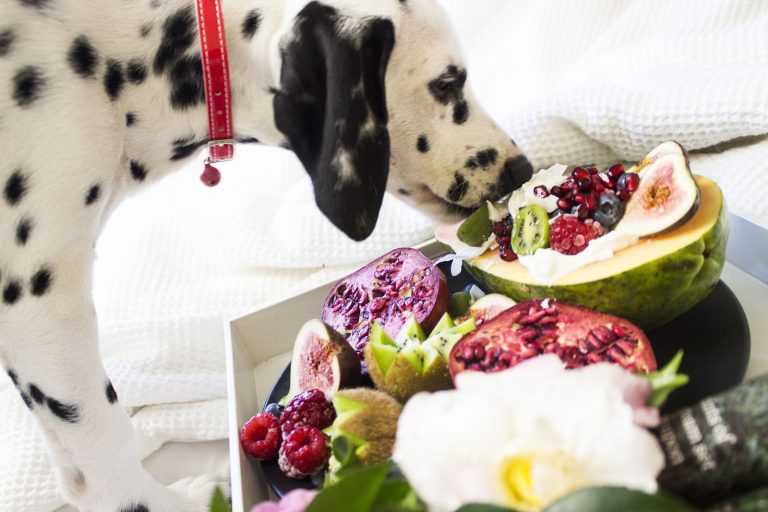I am a college professor whose work schedule is packed with lectures, seminars, and staff meetings. If I’m not teaching, I am in my office devising course outlines, marking mock exams, and preparing for the next lecture.
Besides being a devout educationist, I am a family man. Nothing pleases me more than the welcoming voices I hear when I step into my house after a busy day at work. One thing I love just as much as I love my wife and kids is my dog, Sandy.
Sandy is a 2-year-old golden retriever. I bought it as a puppy from a pet store in San Francisco. Sandy is affectionate and cheerful and greets me with a smile that lights up my world. Apart from going to the beach, and having a great time, there is one more thing that drives sandy crazy.
Yes, you guessed it right: food. Cheese, mashed potato, watermelon, and peanut butter – you name it. However, one thing that sandy loves to munch on is sweet green cabbage. While having dinner, I would toss a little piece of cabbage over to sandy, until it became a daily ritual, and she would always ask for more.
This got me things, can my dog eat cabbage? Let’s find out.
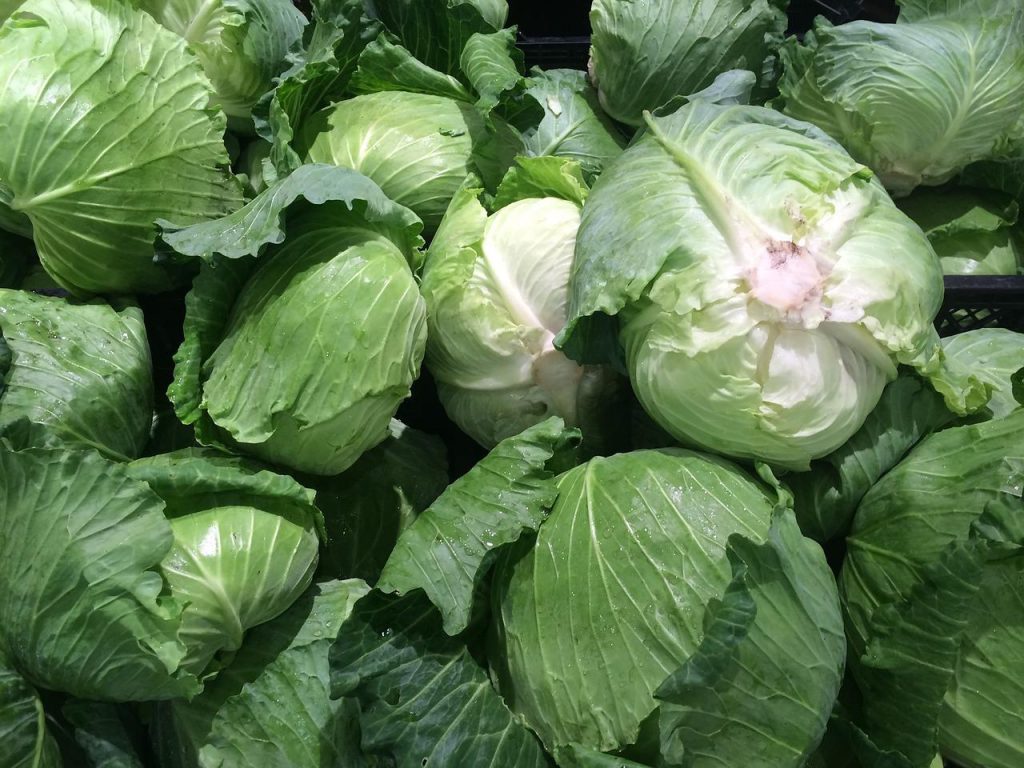
Can Dogs Eat Cabbage?
To answer this question, yes, dogs can eat cabbage. The vegetable is entirely harmless for your dog, and it is also suitable for its skin. The antioxidants found in cabbage are beneficial for your dog’s immune system and help in strengthening it. Furthermore, the antioxidants found in cabbage prevent cell impairment in dogs, through free radicals.
If you are unaware of what free radicals are, free radicals are the atoms that possess unpaired electrons. These unpaired electrons result in the instability of molecules, thus causing the cells in your dog’s body to get damaged.
Free radicals are formed when atoms are exposed to environmental toxins, light, and heat. The natural antioxidants present in cabbages prevent the oxidization of cells from these free radicals. Therefore, your dog’s immune system becomes stronger and functions appropriately.
As far as cabbage is concerned, it is one of the vegetables which are naturally rich in fiber. Fiber allows your dog to have a healthy and functional digestive system. Studies have shown that feeding cabbage to your dog is a great way to eliminate the possibility of cancer. Some of the components found in cabbage result in the growth of an enzyme that prevents cancerous tumors from growing.
People often ask whether raw or cooked cabbage is suitable for dogs. Fresh cabbage is perfectly alright for your furry canine but in a limited quantity. However, it is better if the cabbage is lightly boiled before being fed to a dog. All you have to do is boil the cabbage in hot water, and allow your dog to munch on it.
Dogs love to devour a beautiful crunchy piece of raw cabbage. However, fresh cabbage contains a compound called thiocyanate. This compound tends to get hold of your dog’s thyroid gland, which results in a health condition known as hypothyroidism. This health condition occurs if you are feeding a large quantity of cabbage to your dog regularly. Boiled or steamed cabbage eliminates the harmful effects of thiocyanate, thus making cabbage safe for your dog.
As discussed earlier, cabbage is a healthy food option, but too much cabbage can cause gas among certain breeds. Some of the uncomfortable symptoms of an upset stomach in dogs are stomach pain, diarrhea, and chronic flatulence.
Too keep your dog safe and healthy, make sure it consumes only a small amount of cabbage. It is alright to share a piece of cabbage with your pooch. However, if your dog shows, any of the signs mentioned above, discontinue feeding them cabbage, right away.
Watch this video on dogs eating cabbage.
Why Is Cabbage Good for Dogs?
Cabbage is a healthy vegetable for humans, and it is just as good for dogs. However, as a responsible dog owner, it is always wise to keep a check on what your canine is feeding on, and whether or not it is healthy for them. Therefore, it is good to know what meals are healthy for your dogs, and which ones are potentially dangerous.
Luckily, cabbage isn’t one of the foods you would keep your dog away from. No matter what color the cabbage is, your dog will get lots of proper nutrition from eating it. However, it is better not to add salt, spice, butter, or cream to the cabbage you feed your dog. Adding these ingredients to cabbage, you’ll make it difficult for your dog to eat it. Furthermore, these additives also deprive the cabbage of its natural nutrition.
A majority of dogs love to eat cabbage when it’s raw and crunchy, but according to some vets, it is better if cabbage is steamed or boiled. When feeding your dog cabbage, it is better if you cut it into smaller chunks. Larger pieces are hard to chew, and also choke your dog’s throat, thus resulting in vomiting.
It is a fact that dogs aren’t natural herbivores, at least in the wild. This is why their metabolism takes a longer time to process plants compared to humans. The good news is that feeding cabbage to your dog in small portions allows them to benefit fully from the nutrition cabbage holds.
To be on the safe side, it is better if cabbage isn’t the primary component of your dog’s average meal. Therefore, it must be treated as a supplement instead of a full-fledged meal. The best way to feed cabbage to your dog is by adding small bits of boiled or steamed cabbage, to the dog food.
If your dog is too young or too old, it will take some time to get accustomed to eating cabbage. Therefore, start with smaller amounts and adjust its meal gradually.
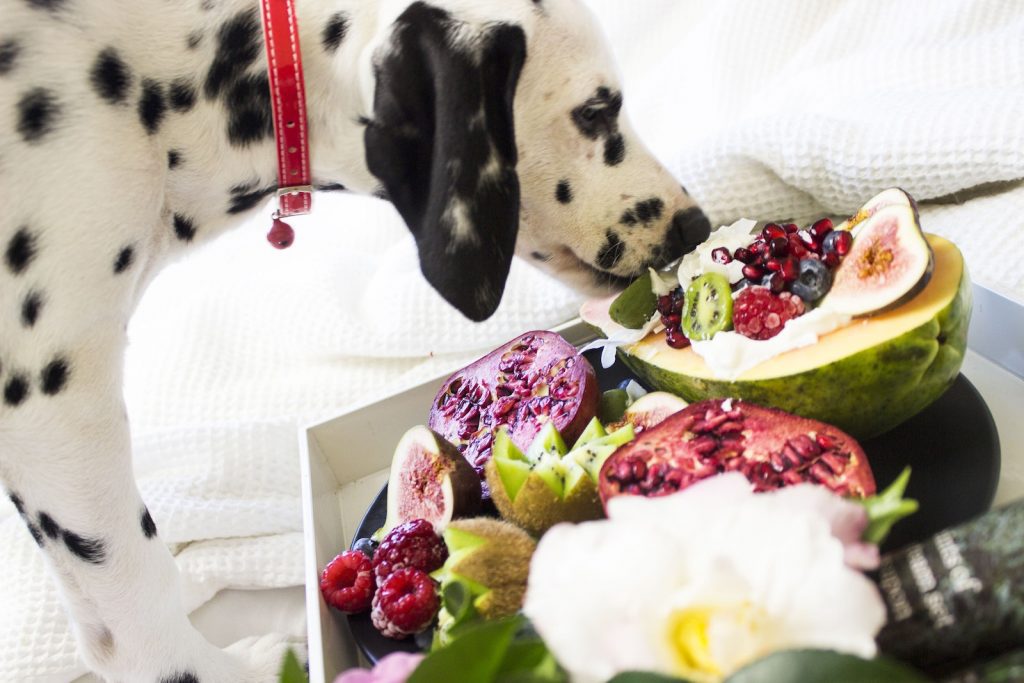
Health Benefits of Cabbage for Your Dog
As discussed earlier in this article, cabbage is rich in fiber. So, what does it mean? It merely means that cabbage in small portions doesn’t harm your dog. Instead, it improves their metabolism and digestion. Feeding cabbage to your dog eliminates the possibility of boating or other stomach issues.
Cabbages are also rich in antioxidants, which improve and strengthen your dog’s immune system. A stronger immune system helps fight against diseases and keeps your dog fit and active.
Lastly, cabbages are a great source of vitamins that are vital for your dog’s well being. These vitamins keep illness at bay and also result in a better coat of fur. Vitamins strengthen teeth and bones and also keep your dog active and playful.
What Ingredients Are Healthy in a Cabbage?
Let’s take a look at some of the nutrients found in cabbage, which are beneficial to your dog’s health.
Cabbage possesses 1 gram protein, which is beneficial for your dog’s immune system. Also, the amino acids found in protein are vital contributors to healthier skin and fur coats. Furthermore, it helps in tissue repair and the development of muscles.
Cabbage contains 2 grams of fiber, which is another healthy ingredient for your pooch. As discussed in the previous paragraphs, fiber helps in the development of healthy metabolism, and also results in better digestion.
The manganese found in cabbages helps your dog absorb protein the carbohydrates from the diet it feeds on. Furthermore, the manganese in cabbages catalyzes several enzyme functions. These enzymes convert food into fatty acids and energy.
Calcium is indeed good for your dog’s teeth, bones, and joints, but there are several other benefits of calcium most people are unaware of. Here are some of the benefits of calcium found in cabbages.
- Formation of cartilage and bones
- Improved digestion
- Relaxed muscles
- Transmission of hormones
- Proper functioning of the nerves
- Heartbeat regularity
Another nutrient found in cabbage is potassium. Potassium is necessary for your dog because it helps in muscle contractions, fluid regulation, and sending nerve signals.
Folic acid is vital for the creation of amino acids and metabolism. It ensures the integrity of the cell membranes of your canine. The absence of folic acid in a dog’s diet causes the structure of your dog’s cell membranes to weaken and eventually die.
How Much Cabbage Can My Dog Eat Regularly?
People often ask how much cabbage is healthy for their dogs if eaten regularly. Surprisingly, it is your pet rabbit and not your pet dog that will demand cabbage as a meal daily. However, it is perfectly alright to sprinkle finely cut chunks of cabbage to your dog’s everyday meal. This way, they will get to enjoy the crunchy snack and benefit from its nutrients.
Add a slightly higher amount of cabbage to your dog’s diet, and you will see the signs, not through your eyes but the nose. We have discussed in the previous paragraphs that too much cabbage makes your dog gassy. Therefore it is better to stick to a less is more approach, when feeding cabbage to your dog.
People often ask, why is boiled or steamed cabbage recommended for dogs, and the answer is quite simple. Boiling or steaming cabbage reduces the natural levels of thiocyanate levels found in cabbage.
Although not potentially dangerous, unnecessarily high levels of thiocyanate can provide damaging for your dog’s thyroid glands. If left untreated, an affected thyroid gland can cause long term issues in your dog, which put your dog in pain.
Luckily, to end up with a bad thyroid gland, your dog needs to be having high amounts of raw cabbage, regularly. This is why a lot of dog owners only feed a small amount of boiled or steam cabbage to their dogs. This helps eliminate the possibility of any complications in the future.
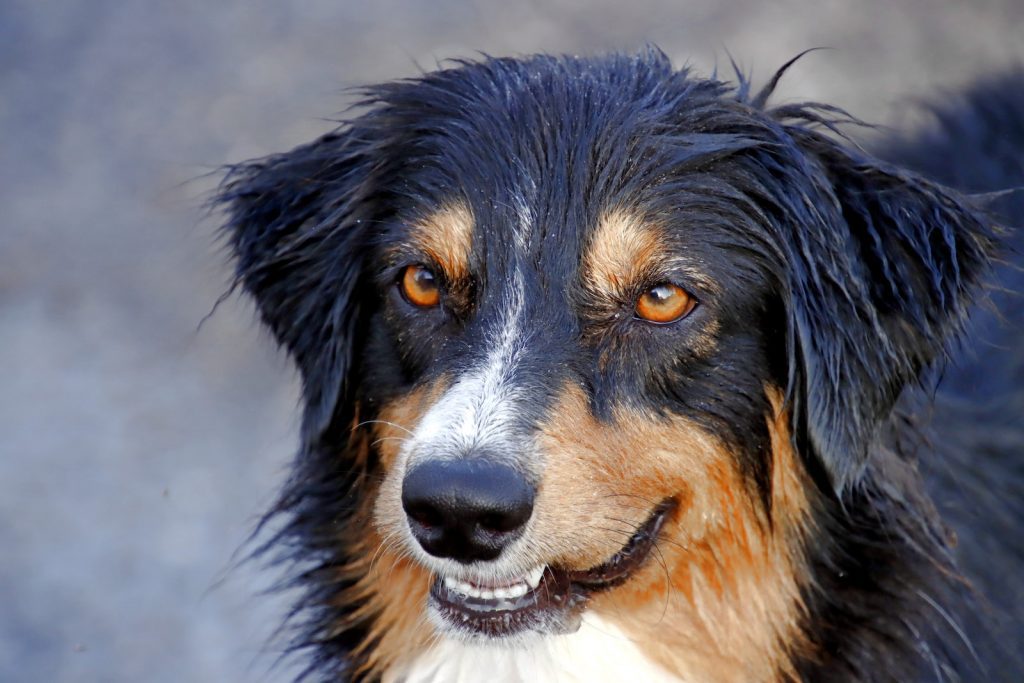
What Is an Alternative to Cabbage If It Makes My Dog Gassy?
One of the best things found in cabbage are the antioxidants. These antioxidants help improve the longevity and vitality in dogs. This is why; cabbages are one of the best sources of antioxidants available in the marketplace. However, because they make dogs gassy, which is a rather unpleasant experience, dog owners are always on the lookout for alternatives.
Not many people are aware of the fact that green tea is an excellent source of antioxidants, and is entirely safe for dogs, with zero side effects. Here is what you need to do. Allow a green tea bad to soak into a cup of hot water for fifteen minutes.
After the fifteen minutes have elapsed, remove the green tea bag. You can give a small amount of green tea to your dog, with regular meals every day. To keep it from contamination, you can refrigerate the green tea. However, if it turns slightly cloudy discard it, and make a fresh brew.
Another alternative to cabbages are the kidney beans. Not many people are aware of the fact that kidney beans are a rich source of antioxidants, which regulate the natural cholesterol level in dogs and keep diseases at bay. Your dog would love to have a few kidney beans, but make sure they are cooked.
To prepare kidney beans for your dog, buy the ones available at your local supermarket, or a grocery store. Soak them in water overnight, and refrain from seasoning. Once they are properly soaked, boil them. Make sure to boil the kidney beans before feeding them to your dog.
Signs Your Dog Likes Cabbage
Here are some of the telltale signs your dog like to eat cabbage.
The sight of cabbage makes them drool and lick their lips.
The dog barks impatiently and demands cabbage, every time you have it.
You find them trying to tear open the shipping bags containing cabbages.
You discover them secretly trying to open the refrigerator hoping to find cabbage.
Signs Your Dog Dislikes Cabbage
Let’s take a look at some of the signs you should refrain from feeding cabbages to your dog.
You should avoid feeding cabbage to your dog if it results in diarrhea or irregularity in the bowel movement.
If you see the signs of flatulence or gassiness in your dog, discontinue feeding them cabbage right away.
If your dog gets unnecessarily itchy after eating cabbages, then cabbages aren’t such a good option.
If your dog experiences chronic ear allergies, it could be due to the big bulks of cabbages it has been munching on. When this happens, take some time and have a word with the vet.
My Dog Just Ate Cabbage, What Do I Do Now?
Dogs have a habit of tearing up garbage bags for scraps of food or devour the grocery bags while their masters aren’t watching. There is nothing uncommon about such mischief because it is embedded in your dog’s nature.
However, sometimes, this mischief can prove costly and create severe health issues among dogs, which put their owners in deep trouble.
Unlike garlic and onions, cabbages aren’t toxic for dogs. Therefore, it is OK if they consume large quantities of cabbages once in a while. However, if they try to overeat cabbage in too little time, they can probably choke.
As far as the issue of thyroid gland damage is concerned, that issue doesn’t arise unless your dog consumes high amounts of cabbage for an extended period.
If your dog has consumed a significant amount of cabbage, there is nothing to worry about. Just make sure it doesn’t happen again. If you fear that your dog will be sick, it is better to book an appointment with the vet.
Conclusion
To answer the question, can my dog eat cabbage? Yes, dogs can eat cabbages, but it is better if cabbages are fed to them in moderation. Dog owners must refrain from feeding the vast bulk of raw cabbages to their dogs, for it contains thiocyanate.
However, boiled or steamed cabbages are right for your dog’s health. Furthermore, cabbages are a great source of antioxidants, which are responsible for internal cleansing, and strengthening of your dog’s immune system.
To keep your pooch happy, healthy, and fit, be very careful of what goes into their tummy. Make sure you feed your dog organic food instead of processed items. Also, take them out for walks and try to incorporate exercise in their daily routine.
Be careful about their vaccinations, and never skimp on a regular medical checkup.

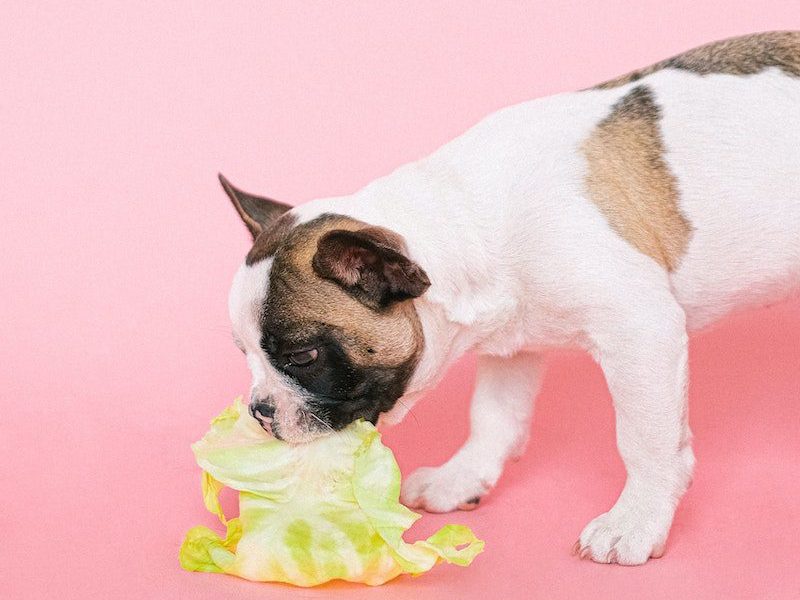
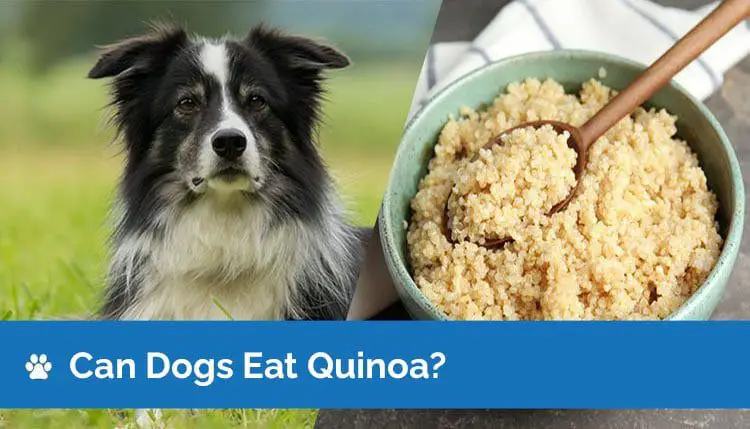

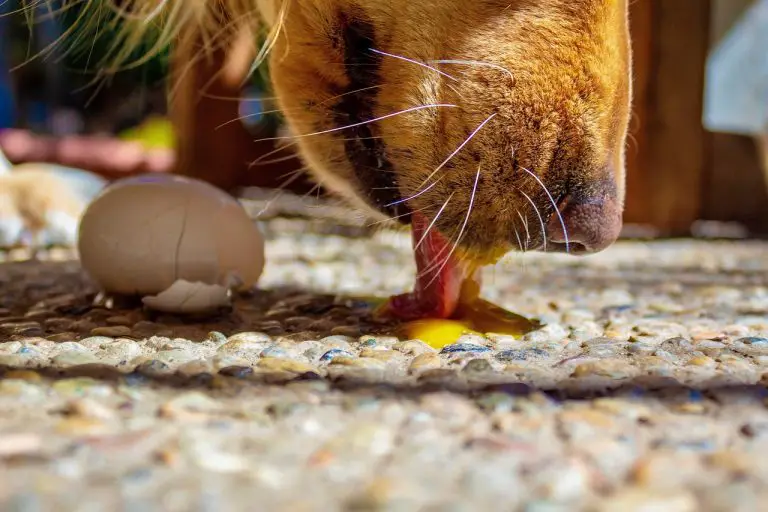
![[Shocking Fact] Human Foods Dogs Can and Can’t Eat](https://dogpages.net/wp-content/uploads/2022/08/5718079-768x512.jpg)

